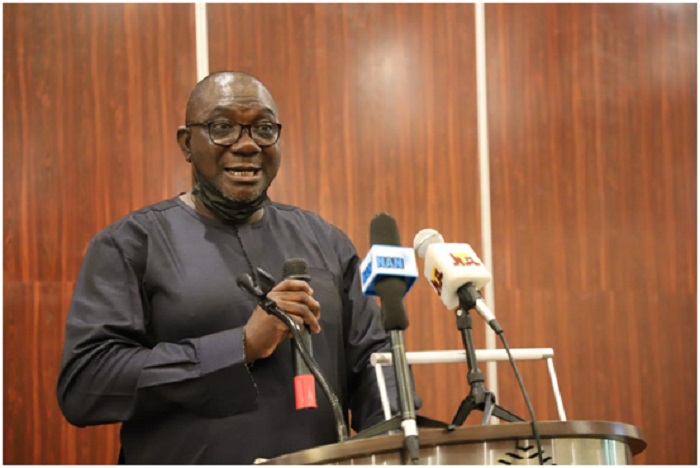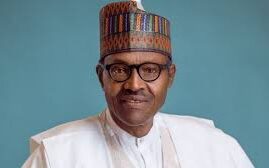



For Charles Onunaiju, director of the Center for China Studies (CCS) in Nigeria, China has become an important part of both his career and life. Established in 2015, the CCS located in Abuja, capital of Nigeria, is the country’s first research institute for China-Nigeria and China-Africa relations. As an executive in the institute, Onunaiju has long been tracking and studying China’s reform and opening-up as well as social development and changes.
Because of the protracted COVID-19 pandemic, Onunaiju hasn’t visited China for over two years, but his attention to China has never been reduced. He has participated for many times in the discussions and seminars held by the International Department of the Communist Party of China (CPC) Central Committee online. His office table is full of books about modern China, among which “Xi Jinping: The Governance of China” and “Up and Out of Poverty”, both written by Chinese President Xi Jinping, are particularly eye-catching.
These books, Onunaiju believes, embody the Xi Jinping Thought on Socialism with Chinese Characteristics for a New Era. “The governance philosophy in these books is the fundamental reason why the CPC has always maintained strong vitality and self-innovation capacity and provided inspirational governance experience for other countries and political parties,” he said.
Between 1999 and 2019, Onunaiju visited China for nearly 20 times, and traveled extensively to Chinese cities and villages. Each of those visits to China brought him different surprises, according to Onunaiju.
Infrastructure construction advanced fast across China and brought about enormous changes, Onunaiju noted. “I witnessed how buildings and roads developed in the countryside of east China’s Anhui province. From local people’s warm welcome, hearty laughter and the confidence in their faces, I could see that they are not only quite well-off, but enjoy more spiritual wealth,” he recalled.
According to Onunaiju, his trip to southwest China’s Tibet autonomous region in 2014 impressed him deeply. “We went to a place named Niangxin. It’s about 12 hours’ drive from Lhasa, capital city of Tibet. I was amazed that the Chinese government managed to build roads in such cold regions with harsh conditions. While I was watching the scenery outside the window along the journey, I suddenly realized that it was not just the roads that became smooth; it was also the connection between the government and the Tibetan people,” he said.
On a street in Niangxin, Onunaiju saw local people singing and dancing happily. A hospitable Tibetan resident invited him to join them in the dance. “I’m not quite a dancer, and yet I was so touched by the happy atmosphere that I started to dance, though clumsily, along with the beats,” Onunaiju said, adding that the resident told him that they are better off and often dance in their leisure time.
When Onunaiju visited a local family, the host said he never imagined that he could watch TV at his home and that his kids could go to school one day.
“He told me that all of these were made possible by the CPC. I still remember the happy look on his face when he said it,” Onunaiju said.
“Xi, general secretary of the CPC Central Committee, once stressed that ‘We regard as our goal the people’s aspirations to live a better life.’ What I saw and felt in Niangxin is a perfect testament to the promise.”
Onunaiju has been to Beijing twice for the Belt and Road Forum for International Cooperation, which gave him a chance to see personally how Xi communicate with government officials from various countries and representatives from international organizations.
“Xi’s remarks are inspirational, and his demeanor demonstrates that he is a calm, strong-willed and decisive leader of a major country. He always takes into consideration the realities, and strives for the happiness of the people through unremitting efforts,” he pointed out.
Through the Belt and Road Forum for International Cooperation and other activities, Onunaiju has gained a deeper understanding of the Belt and Road Initiative (BRI).
The BRI was proposed by China and meant to help the world share China’s development opportunities and fruits, which fully shows that China sincerely promotes international connectivity and shares its development opportunities with others, Onunaiju noted.
In Nigeria, fruits of cooperation under the BRI have vitalized the local economy and brought tangible benefits to the Nigerian people, he said. The Chinese-built Lagos-Ibadan Railway in Nigeria has greatly improved the efficiency of passenger and cargo transportation and that the Lekki and Ogun Guangdong free trade zones built under the framework of the BRI have been constantly upgraded and improved in recent years, Onunaiju added.
The proposals and concepts initiated by China, including the BRI and the idea of building a community with a shared future for mankind, are never empty talk, Onunaiju stressed.
“When I saw many Chinese friends in Nigeria work with local employees on the construction sites of railways, roads and bridges in the scorching heat, I saw the brotherhood between the Chinese and Nigerian people. It’s the same case with other countries in the world. I firmly believe that China’s development concept is the result of deep reflection on the actual situation and development trends of mankind, and has charted the right route for the international community,” Onunajju said.


Flag Foundation of Nigeria, a Non-Governmental.


The Cross River State Governor, Sen..


A coalition of ten Civil Society.


A coalition of youth groups under.


A Non Governmental Organization (NGO) Anti-Kidnapping,.


The gubernatorial candidate of the Labour.


The Executive Director of Flame Television.
The European Union Election Observation Mission.
The Institute for Peace and Conflict.


Founder and Chairperson of the defunct.
Leave a Comment